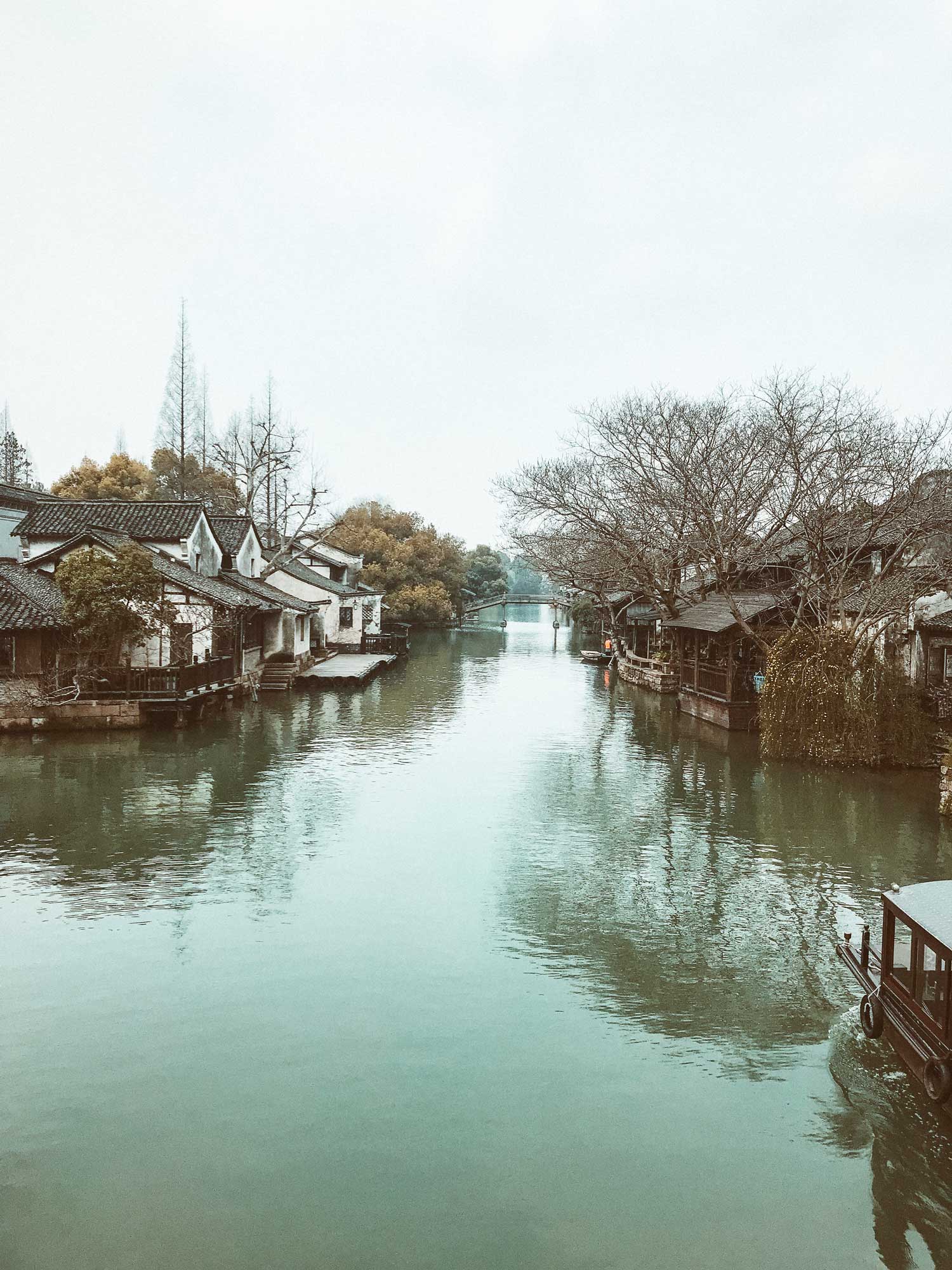
Back in March (now it’s the last Monday in July, typical Juliette Style) when my little furry ball came to visit from Amsterdam, we took a day trip down to the famous water town Wuzhen.
We were fortunate enough to have a driver to drive us down there, but it’s very convenient to get to Wuzhen by speed train, from Shanghai or Hangzhou. First, you take the train to Tongxiang City, and then you can choose either taxi or take a bus here.
Lies within the triangle formed by Hangzhou, Suzhou, and Shanghai, Wuzhen is famous for so many reasons, an ancient water town to start with, it is also home to the world internet conference, and the annual Wuzhen Theatre Festival, just to name a few.
And the reason I like it is because of a man. Two actually, two writers. Mao Tun is a household name; every Chinese studied his work in school. His book <The Midnight> is a must-read, it’s a window to Shanghai in the 30s, the most complicated, chaotic time there was.
And then there’s Mu Xin. Writer, painter, poet, and a true artist.
I saw a picture of Mu Xin when he was young much earlier than his poem of his that went viral on the internet a few years ago. Staring at that black and white picture, I murmured “He must come from that time”, he looked like a prince, a true gentleman. He was also the mentor of the famous artist Chen Danqing. While Mo Gan Shan is now considering ” the hotspot for a weekend retreat, Mu Xin has done his fair share with that place many moons back. He’s ahead of us and ahead of his time.
I was obsessed with him for quite a while now and bought all the books I can find about him. Little did I know that Mu Xin met Mao Tun before and he borrowed a lot of books from the Shen Family(Mao Tun’s original name is Shen Yanbing, Mao Tun is his pen name).
I love reading his essays, so lightweight but heart-fulfilling. I think we can be friends if we ever met. But that can only be a dream now. After many years of living abroad, Mu Xin returned to his birthplace in 2006 and died there in 2011 December, aged 84.
He took the charm and class that only belongs to his time with him. I am always a little sad when I can only use the past tense to mention someone. But life must go on and luckily he left us an unmeasurable amount of treasure that we can benefit from forever. And now every time I pick one of his books from the shelf, I will remember the first black and white picture that I ever saw of Mu Xin.
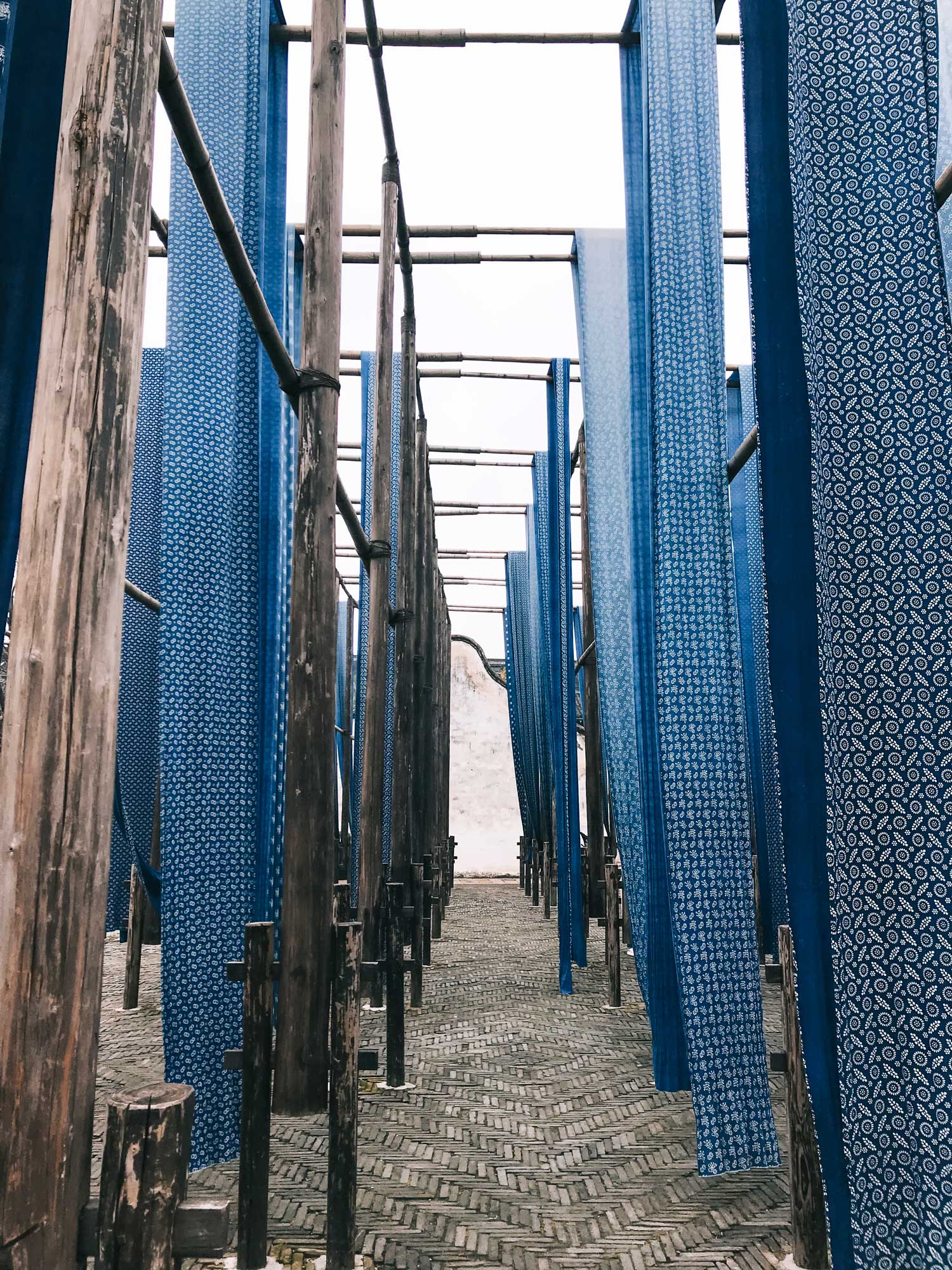
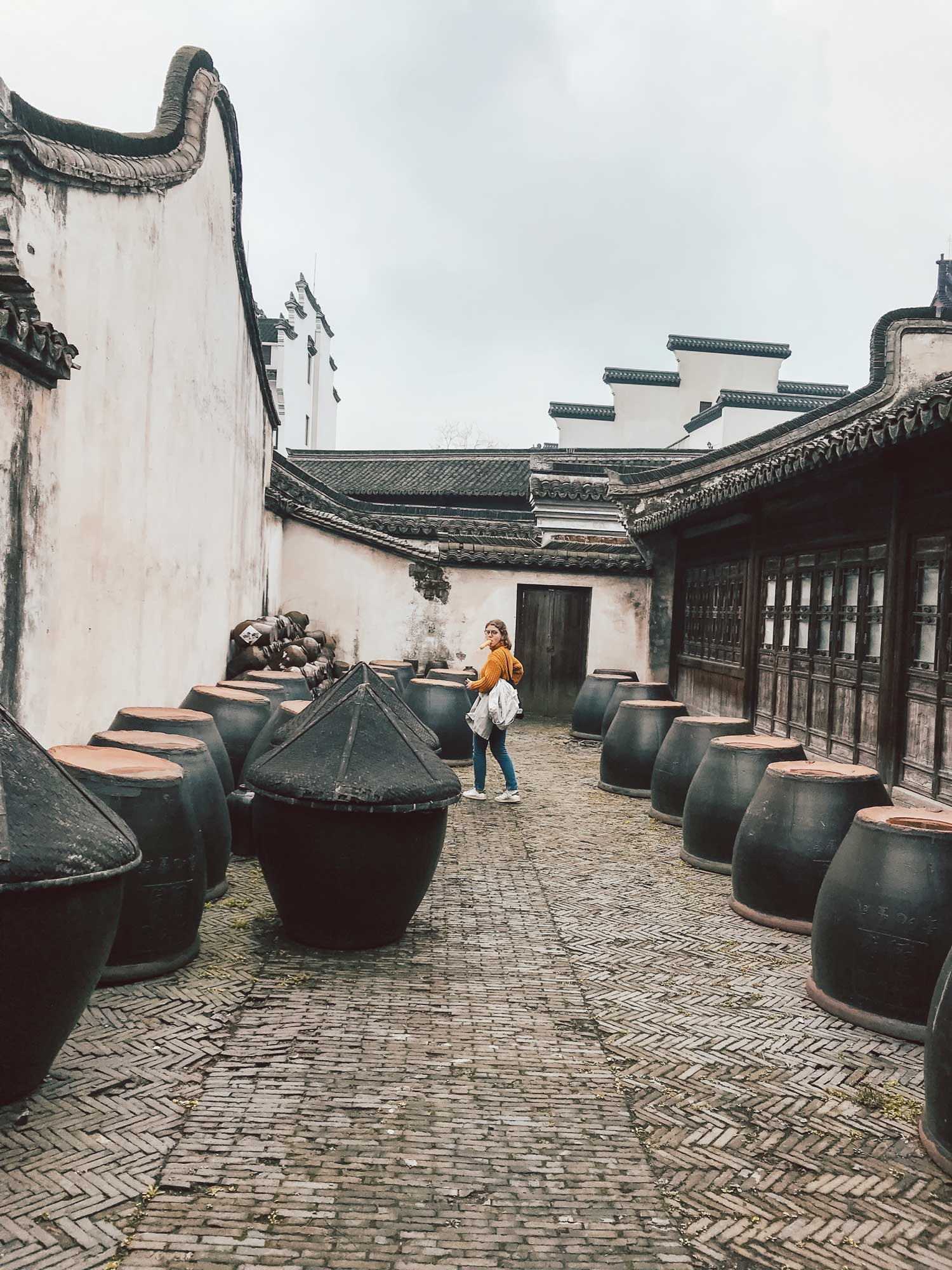
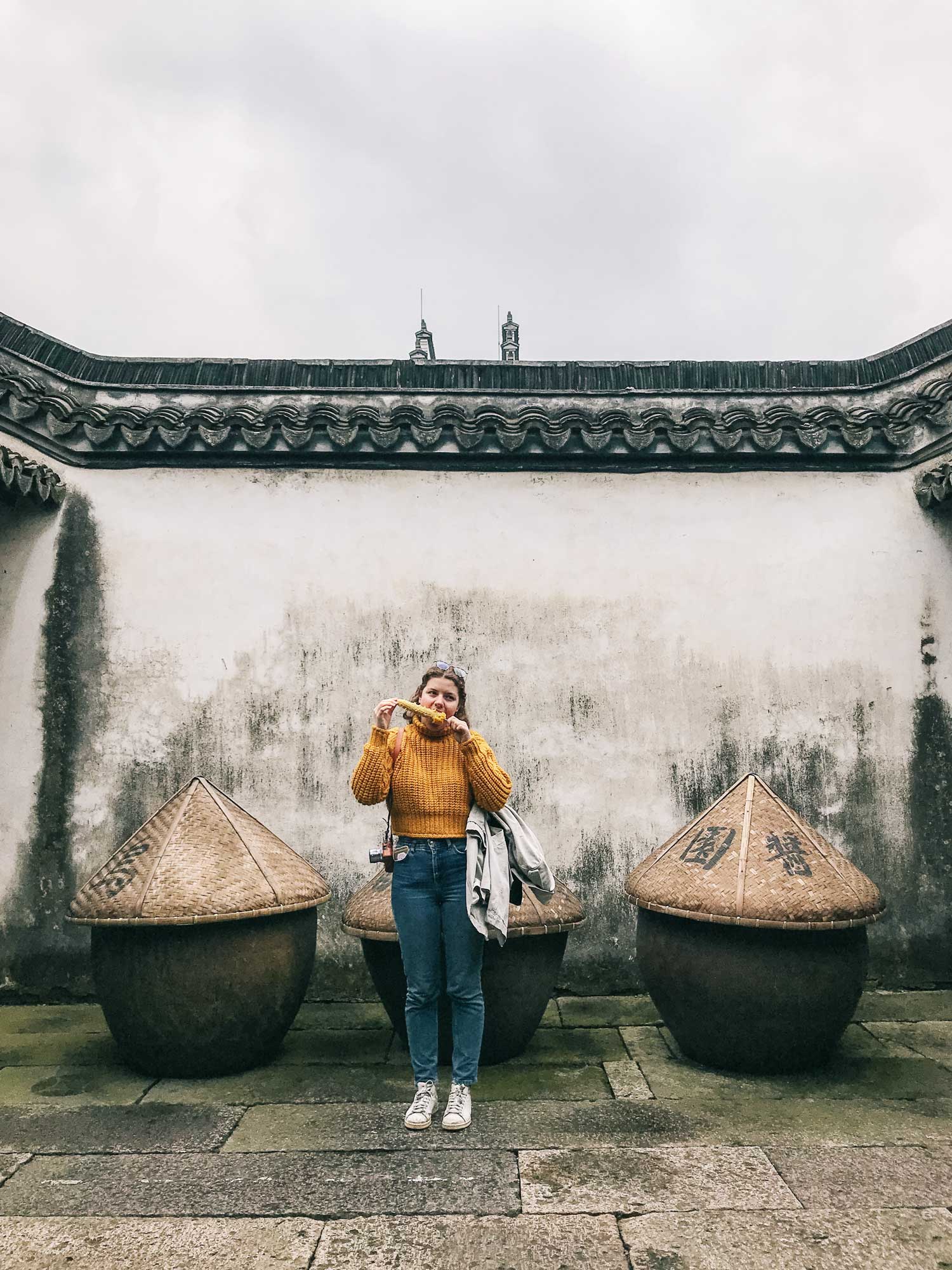
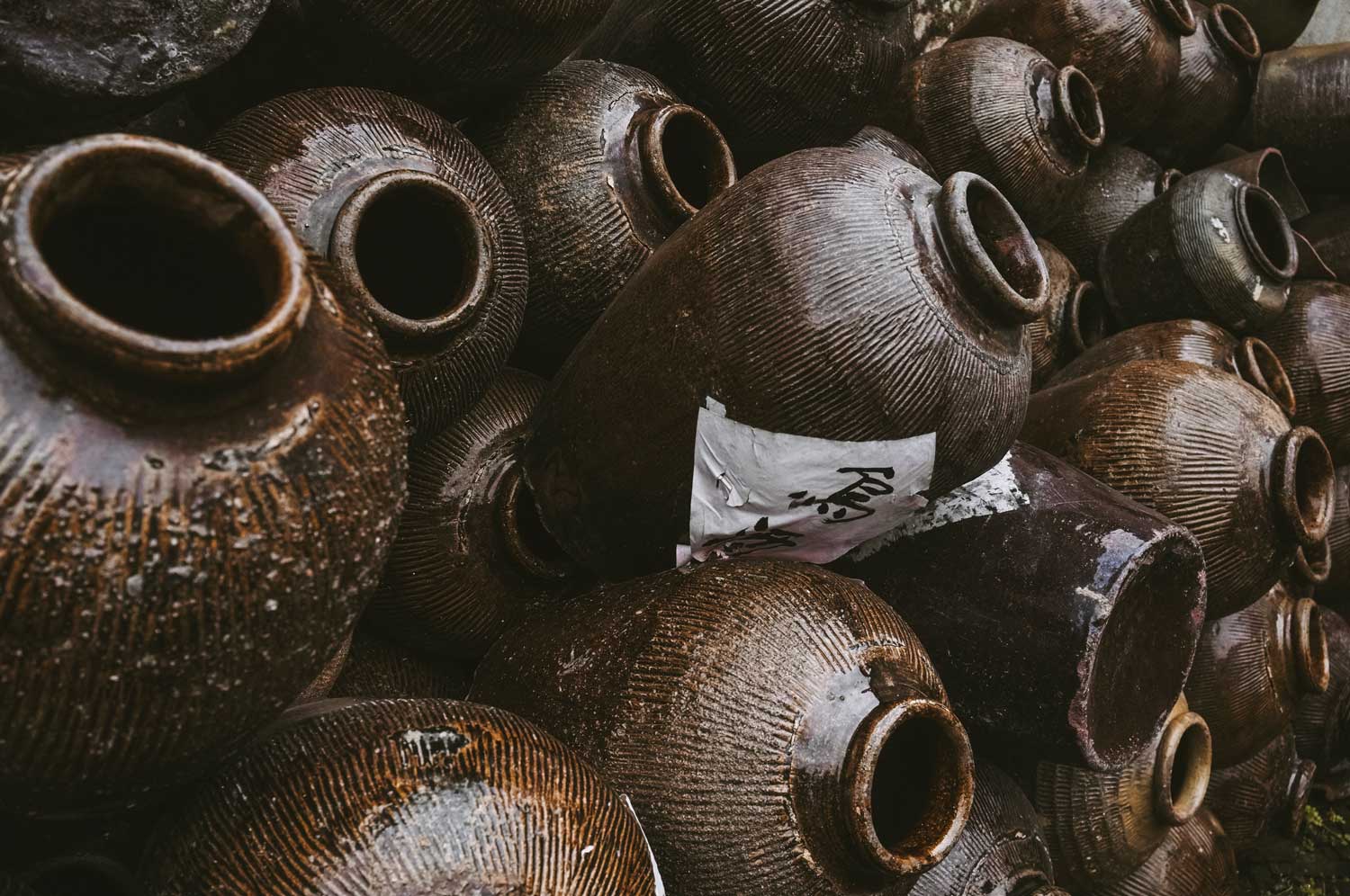

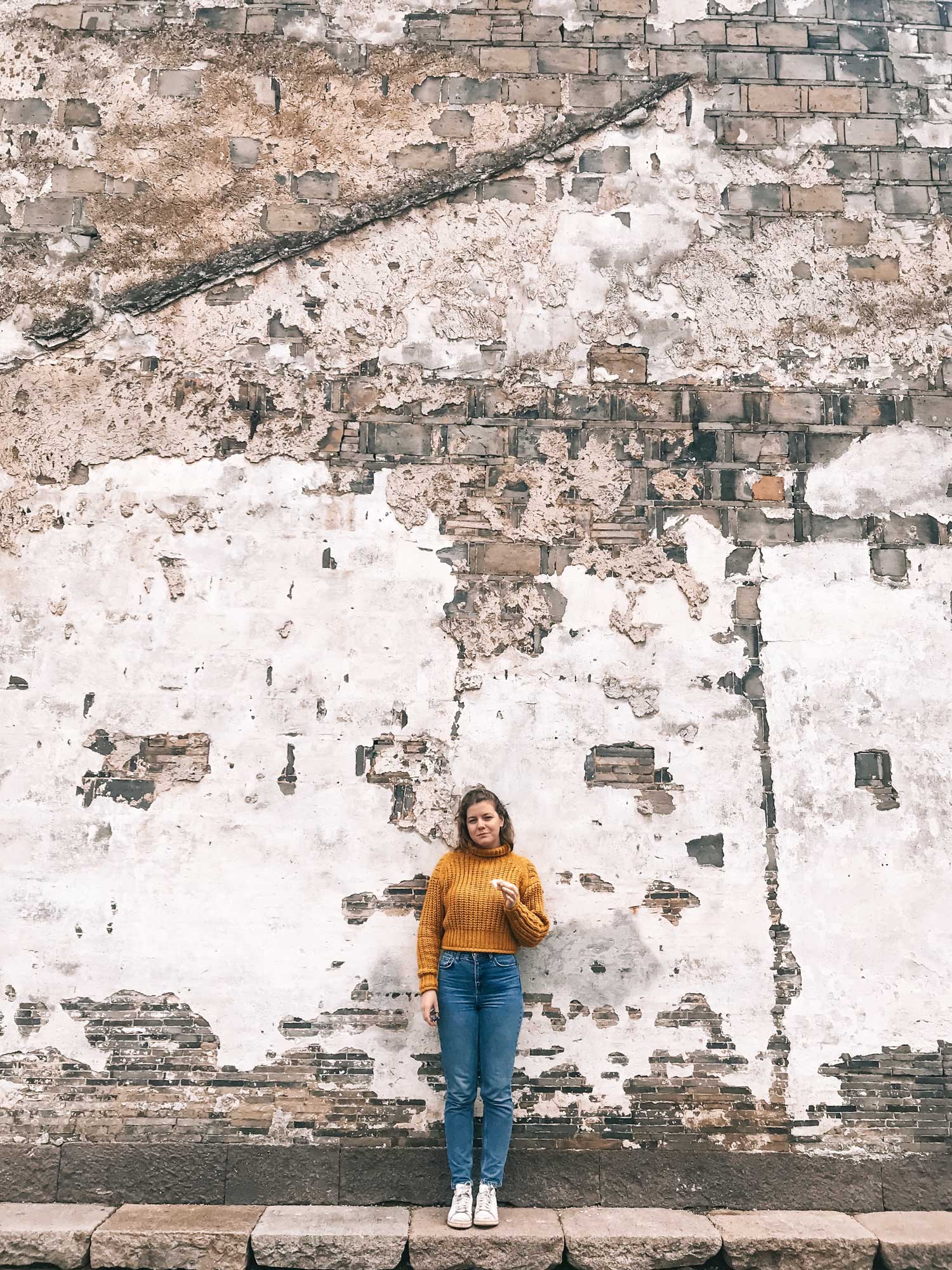
Don’t you get fooled by the blonde hair and blue eyes, this Hong Kong-born, Beijing-raised French cutie shared the same childhood memory with me. We ate the same childhood snacks, and tasted the same Chinese popsicles, I’m talking about the ’90s, baby! We eat tea-cooked egg as an afternoon snack and munch on the slow soy milk cooked corn, proof: as shown in the photos.
Obviously, we have something more in common than just the childhood snack collections. We spent a Sunday together and basically became inseparable ever since. She consistently wants to raid my closet and I’ve been very aware of no longer using a plastic straw, ever! We share the same love for art, food, travel, fashion, and cute mixed Canadian boys.
Xi Zha- West Fence
Rather in an unconventional way, we started our visit from Xi Zha- West Fence ( Literal translation, but you got the image), whilst most of the tourists would start the tour in Dong Zha – East Fence and come over to Xi Zha at night for the light show. We were only here for the day, surely we are going to miss the light show anyway, we figured it doesn’t really matter which end we start.
So it goes.
Xi Zha has in total of 12 islands, connected by 70-something bridges. It has all these long quiet flagstone alleys paved among the hotels and resorts. Yes, Xi Zha has excellent hotels with terraces facing the water. I seriously don’t mind switching off my phone for a week and just hiding in one of these rooms to read and write.
I like how quiet and serene this place is. We were definitely not alone, despite it being the early spring and the weather is not as warm as it seems, we still had a lot of company. But it didn’t feel like a touristy place where it was loud, busy, and noisy. Everyone really just minding their own business. Everybody is connected with this place and wanted to keep it within them. Annabelle and I accidentally walked into a room and couldn’t find our way out for quite a while. But that’s okay too, the room itself was an interesting history page for us to discover and we eventually find the hidden push button to open the door and back on the flagstone pavements.
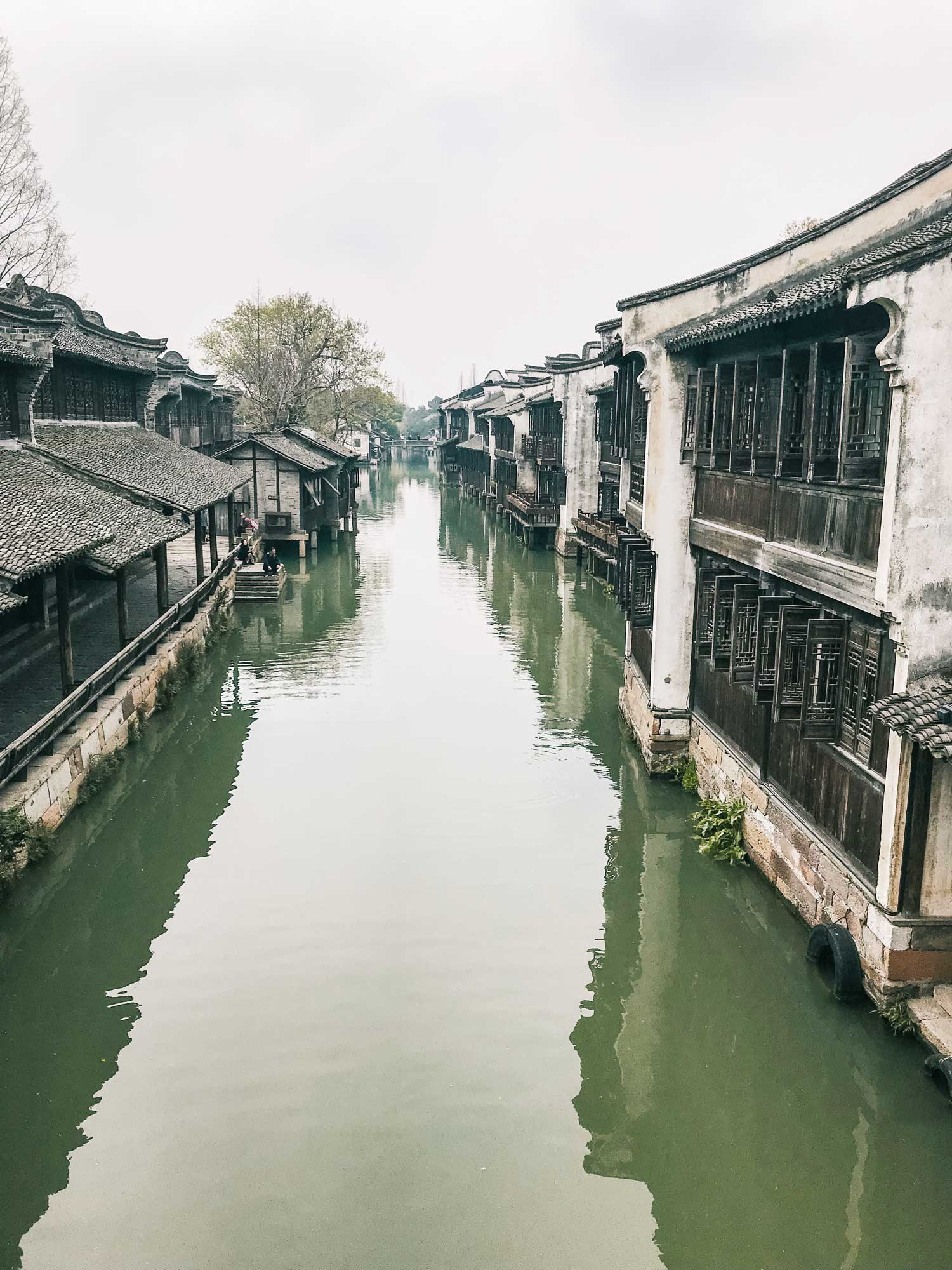
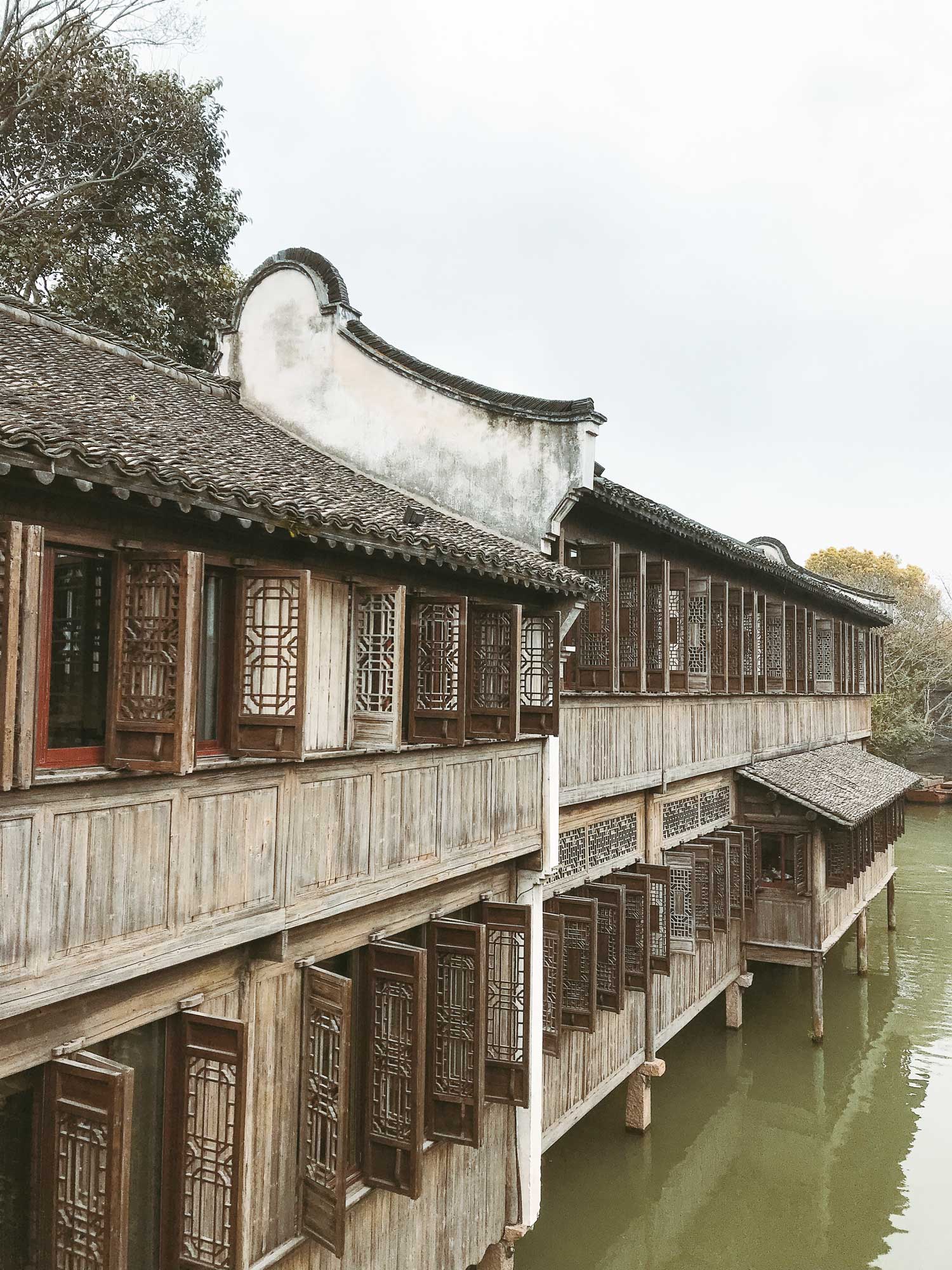

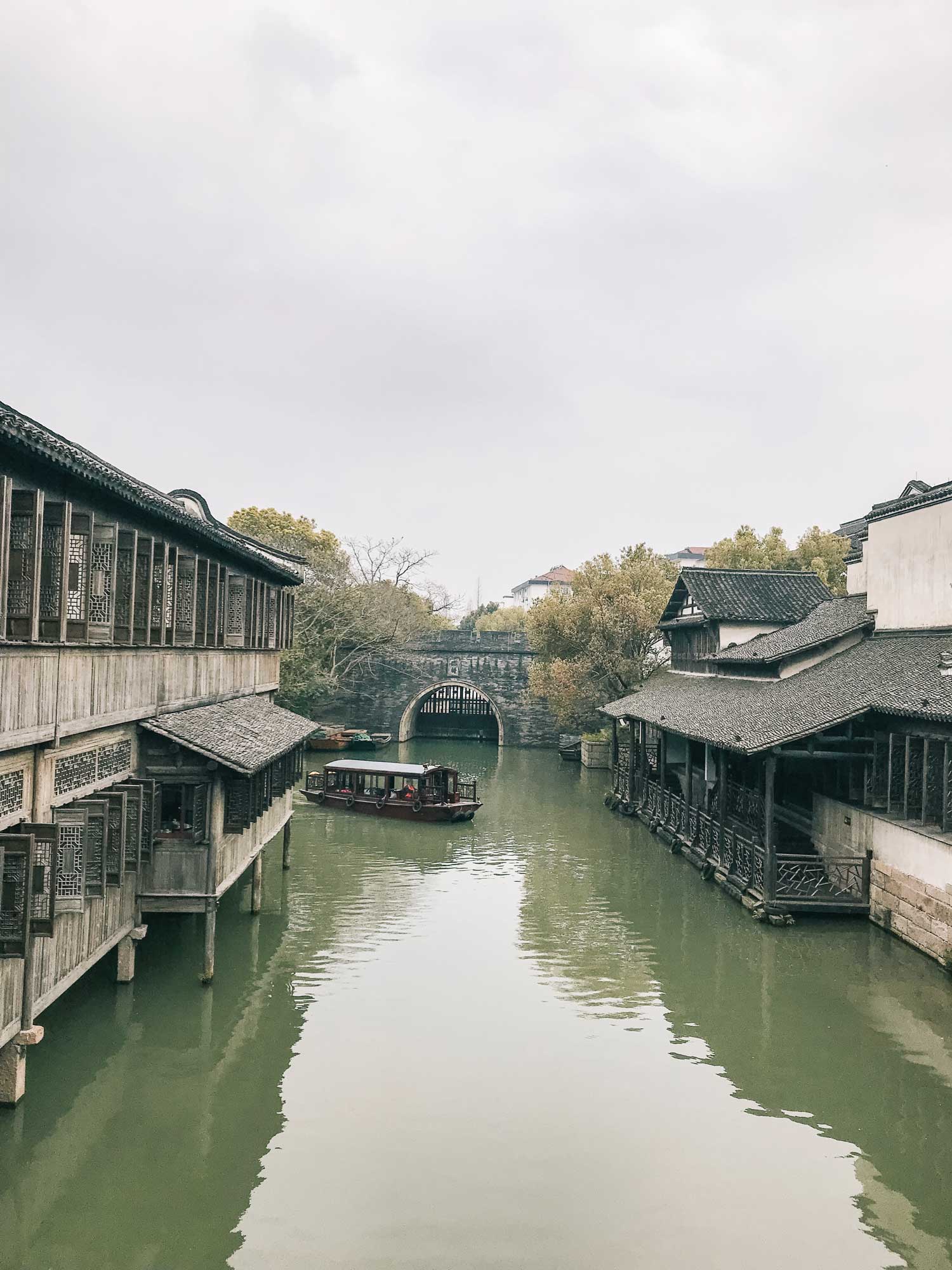


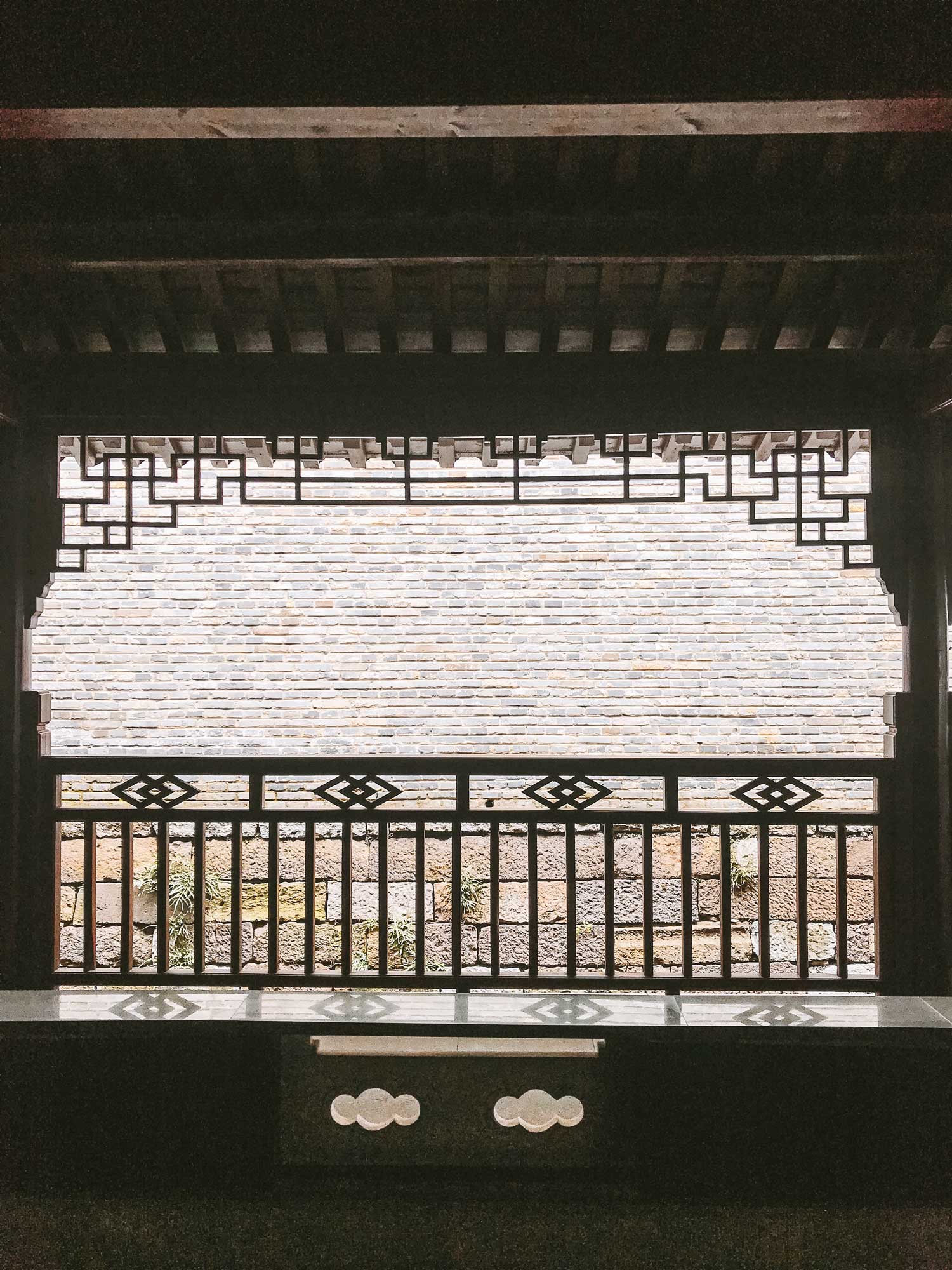
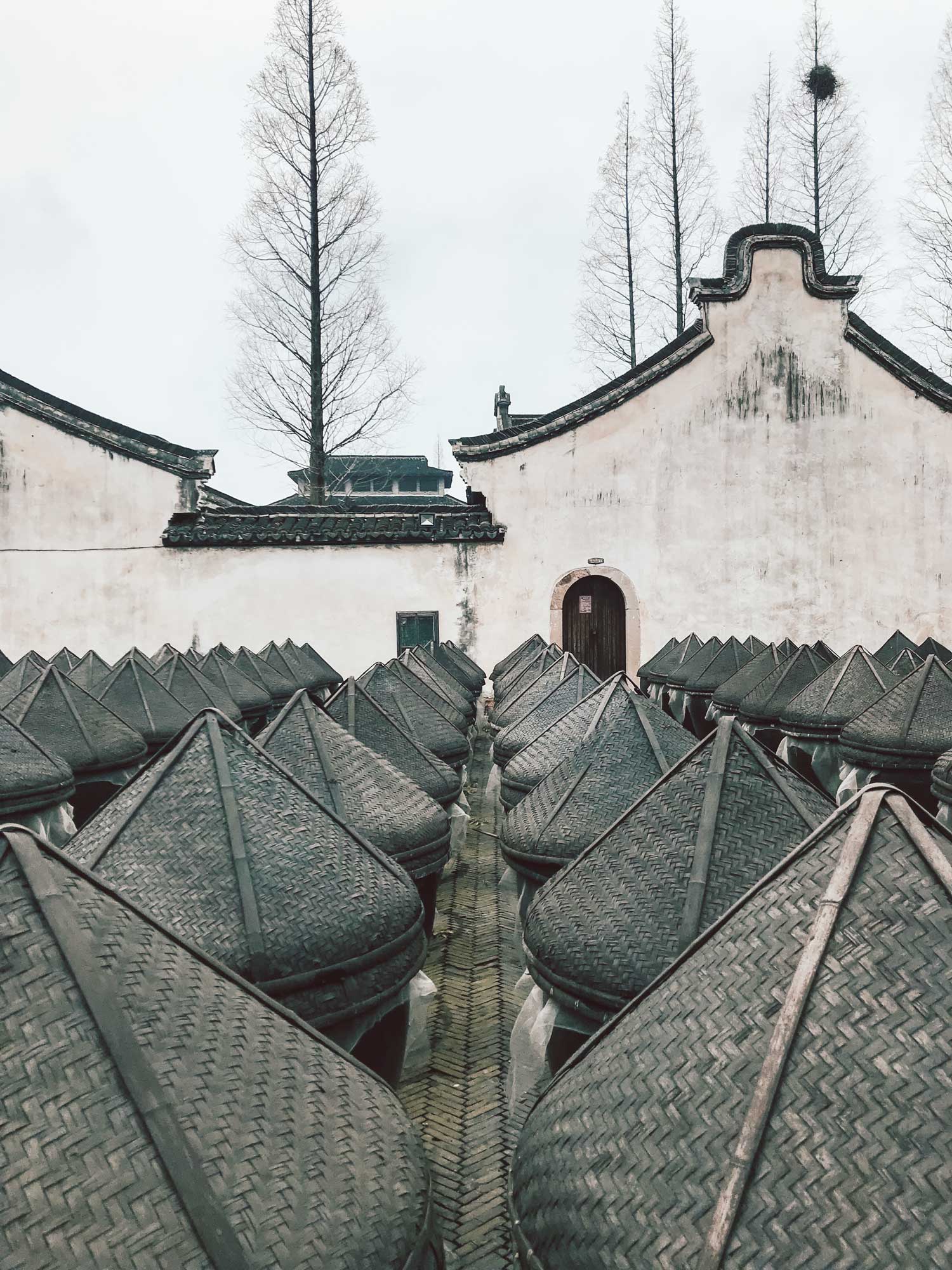
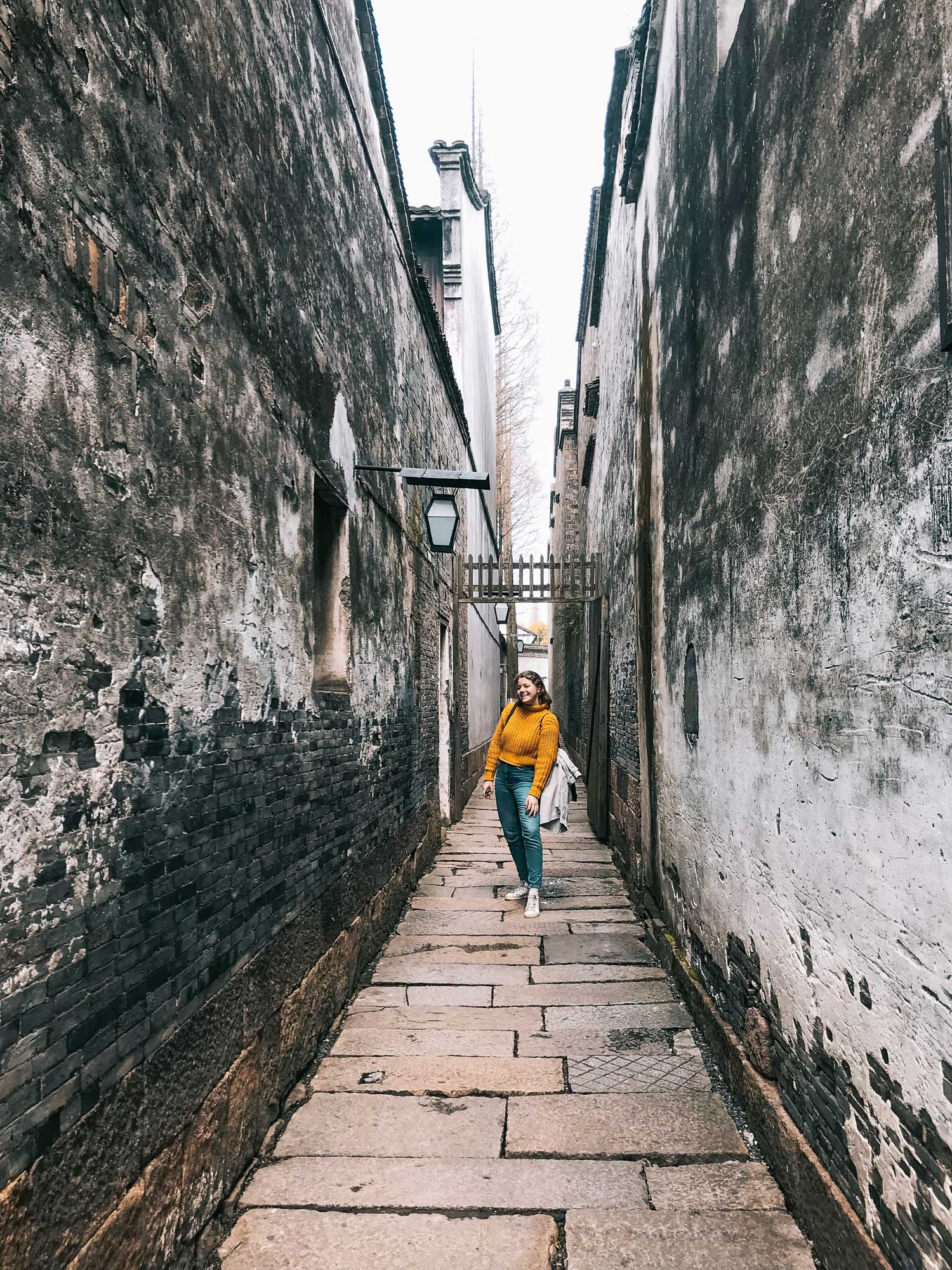
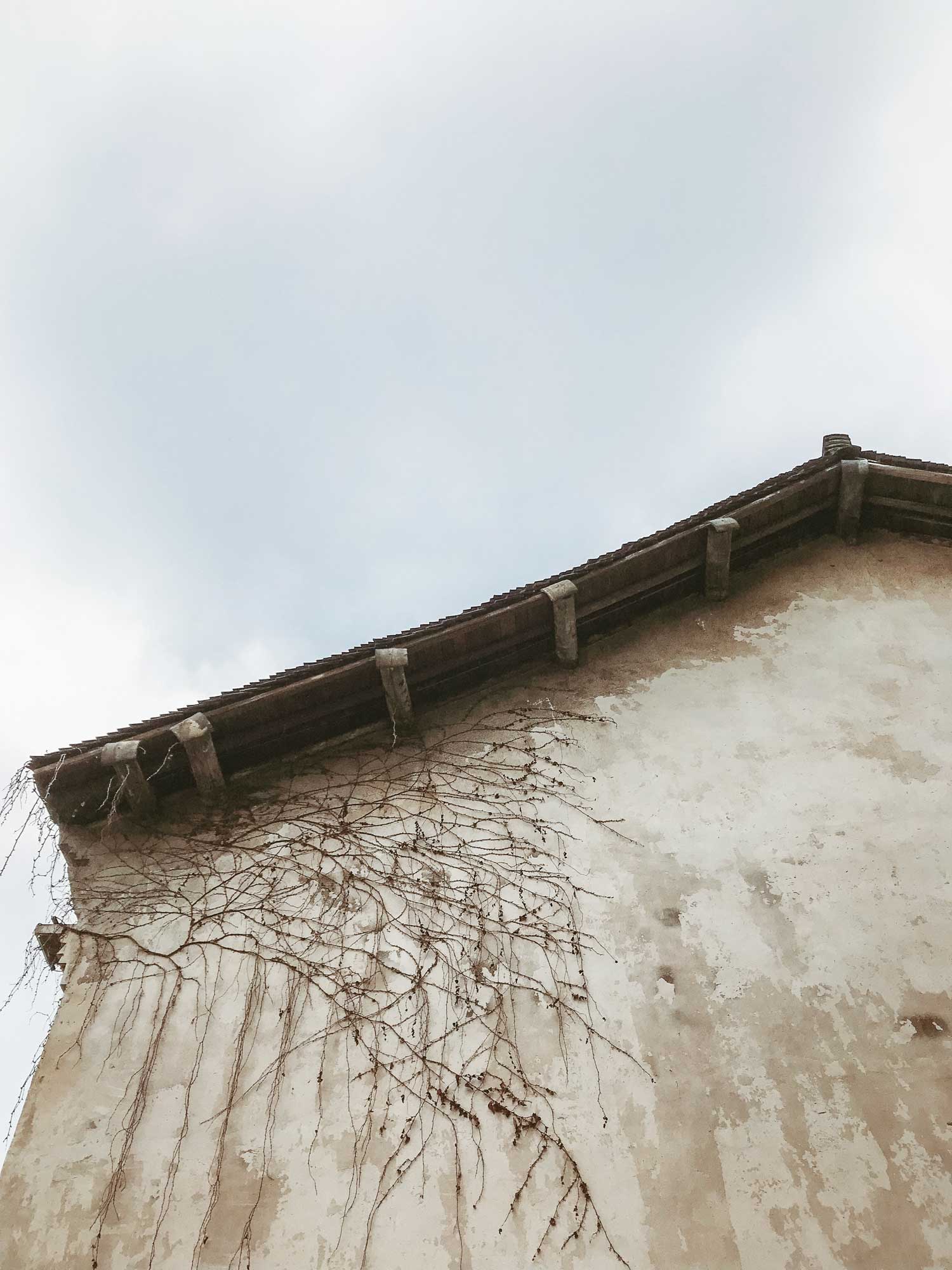
Dong Zha – East Fence
If we heard nothing in the West Fence, we are about to hear everything in the East.
If the West is a nicely and carefully curated half of Wuzhen, the East would be the authentic original, raw, organic another half of the water town.
Why authentic, original and raw? There are people who still live here! They are of course the resident of Wuzhen from the very beginning. But like everywhere else, you would think that once something or someplace develops into a tourist spot, you would relocate the people and make it the tourist spot where you charge the admission, but here, the woman still washes the vegetables by the dock in the water. Granny still bakes the same pie she would bake for the grandchildren, only now she sells them to the outsiders too.
My favorite part of this side of the tour was when we stepped into a place where tourists suppose to stop, but the boy who is also a local decided to feed our curiosity and let us pass. We got the chance to see what the local’s houses really looked like and what their lives are. After the main entrance, which serves as a front living room, we came into a courtyard where the flowers and grannies are. I felt like they were been living like this for the last century and nothing much has changed, sure they have AC and maybe internet now, but the layout of the house, the way how they prepare their dinner, you can easily place them back to the 1970s and it would most probably still fit in that time. At some point I was indeed Alice in wonderland and fell into the rabbit hole, I can’t really figure out where I was, and which year it is. All the noise out before that door was muted. I only remember the sun reflected and saw a spider’s web on the corner terrace of the second floor.
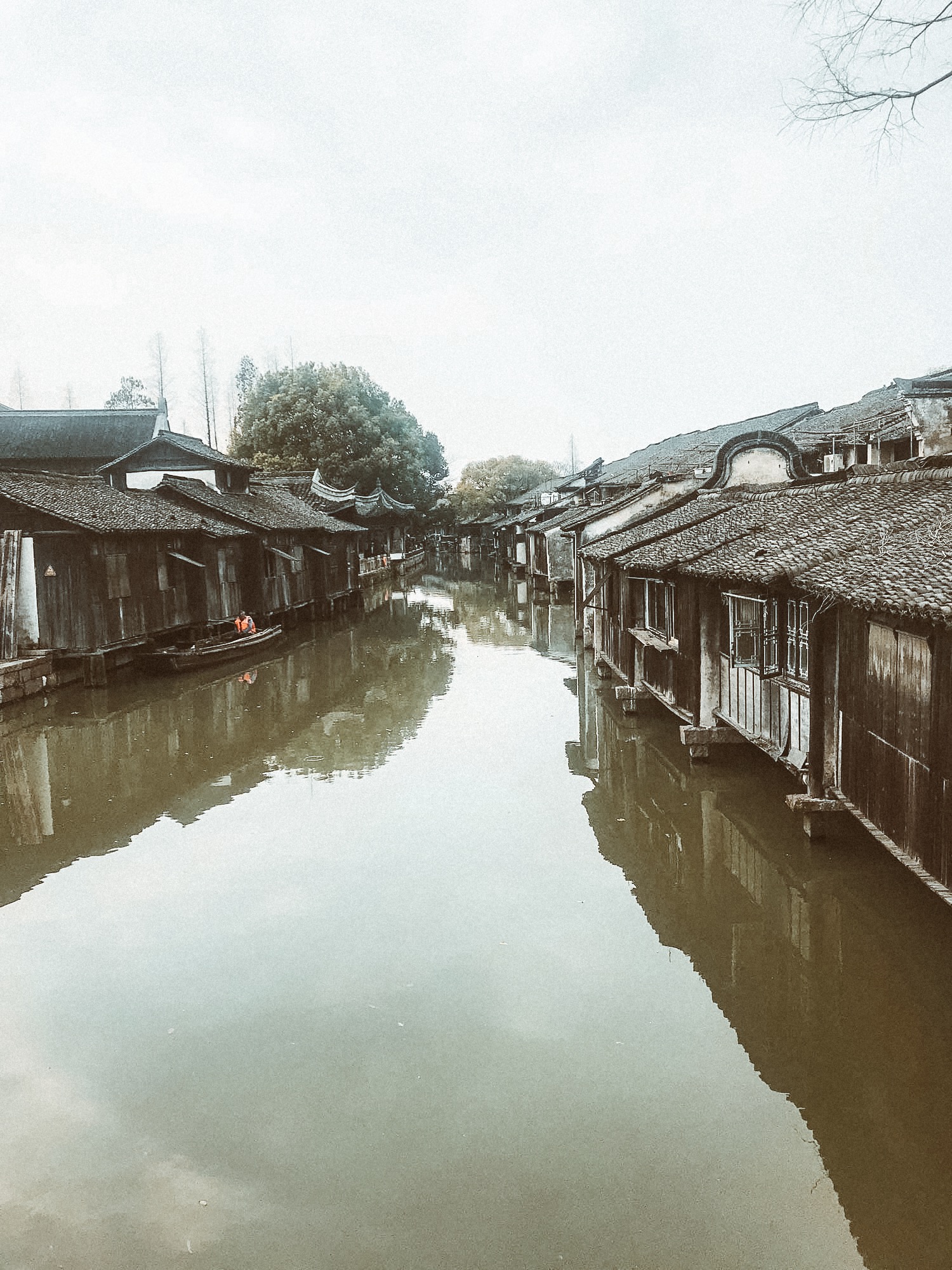
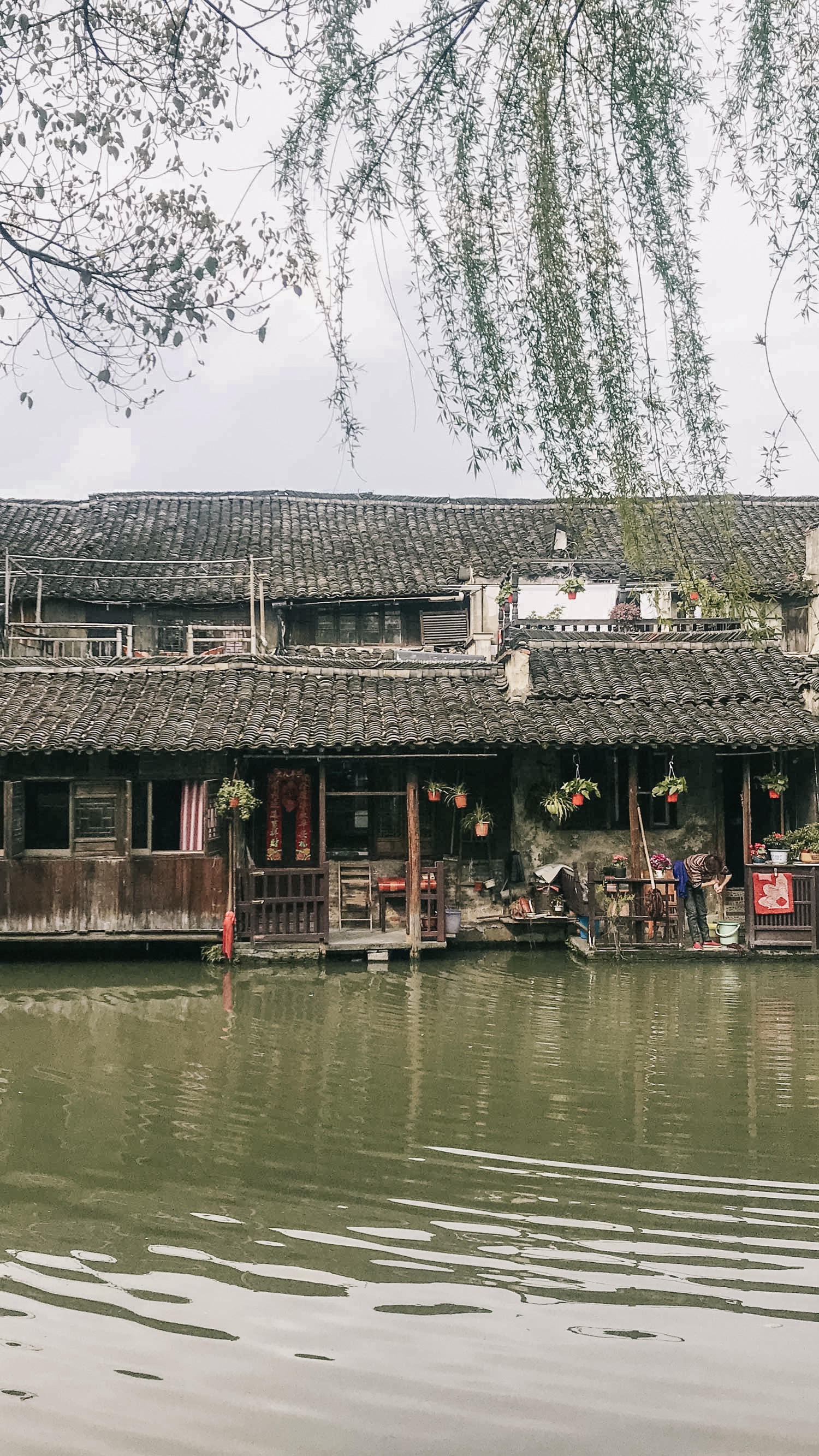
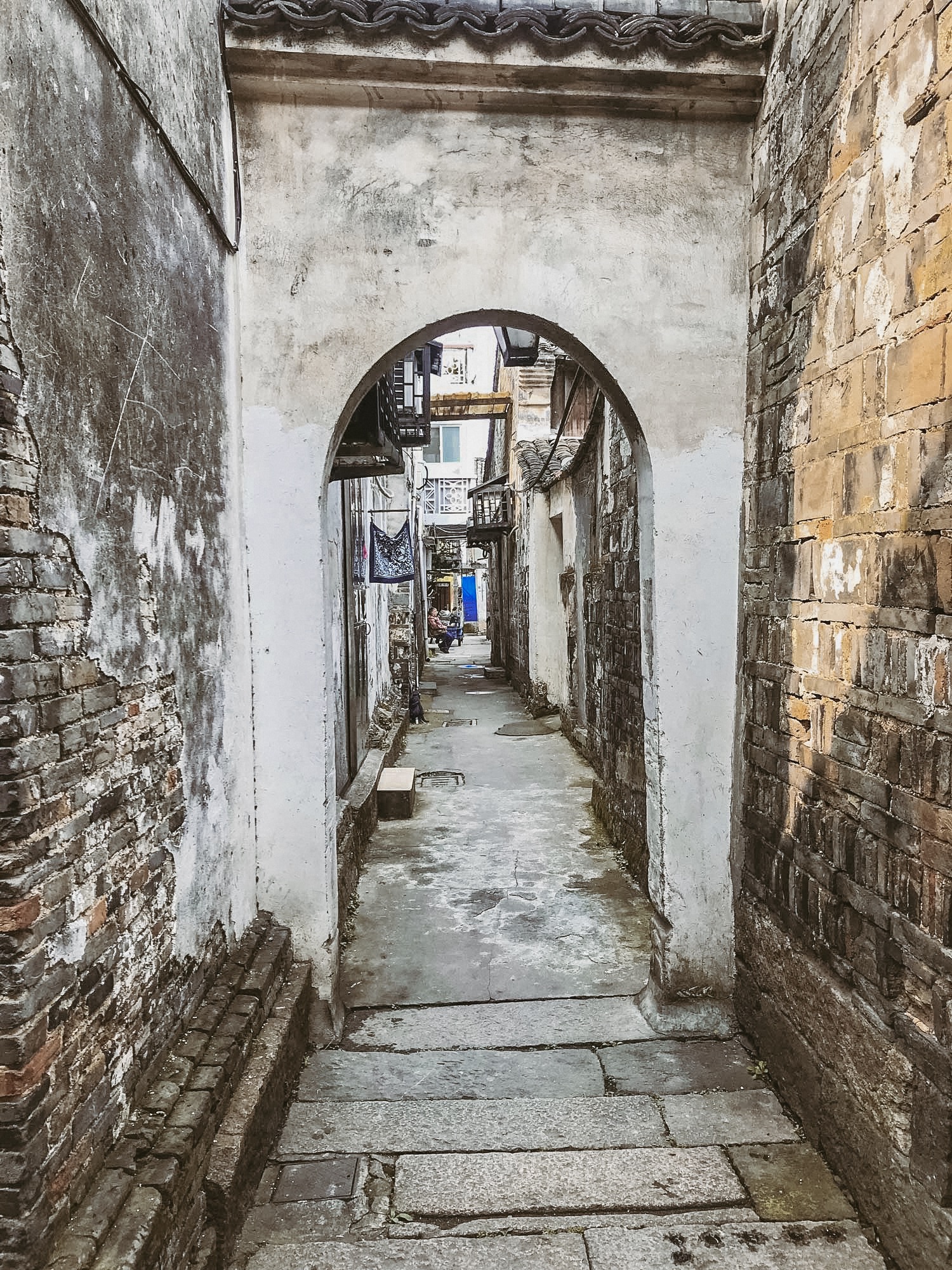
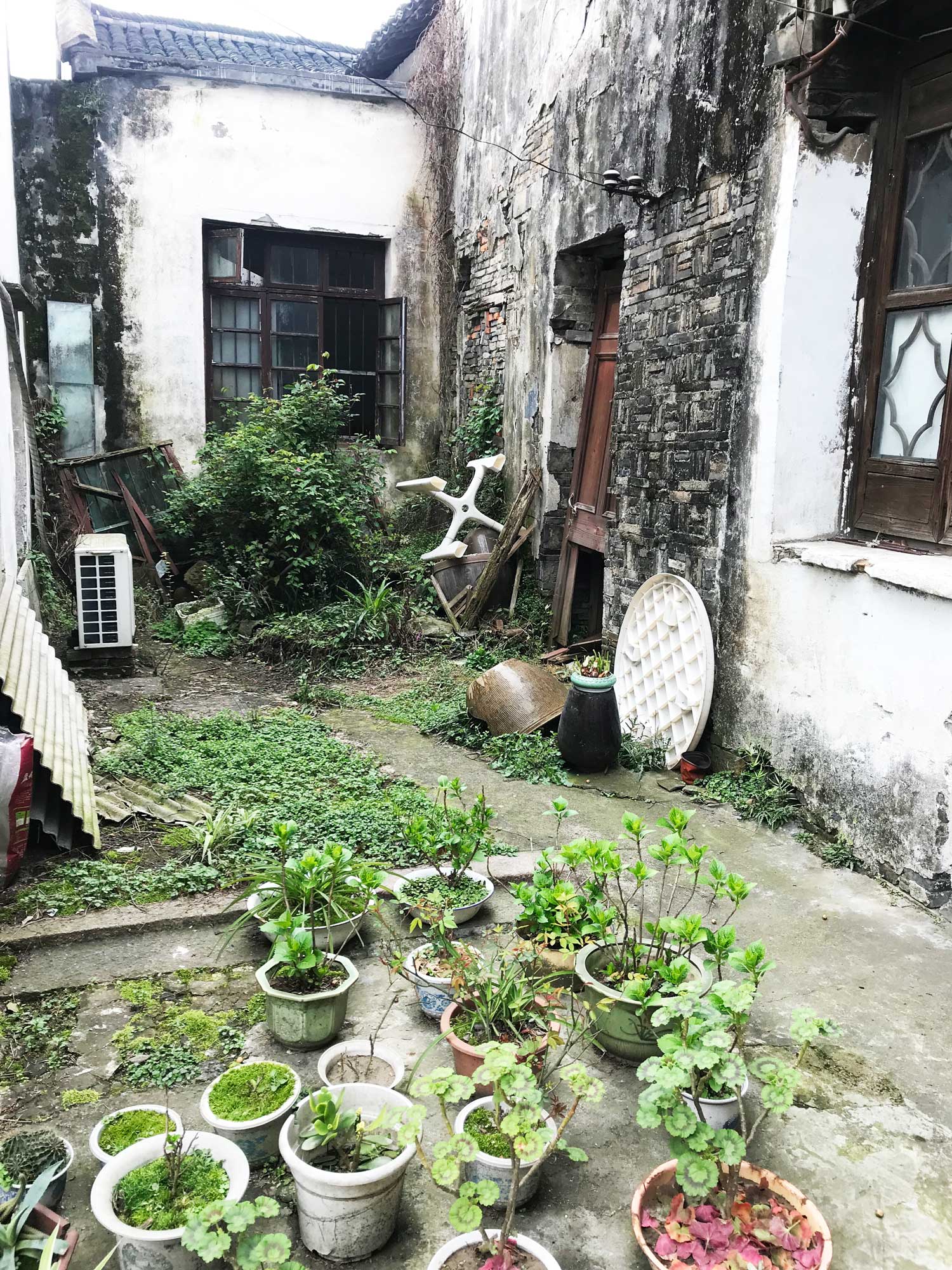
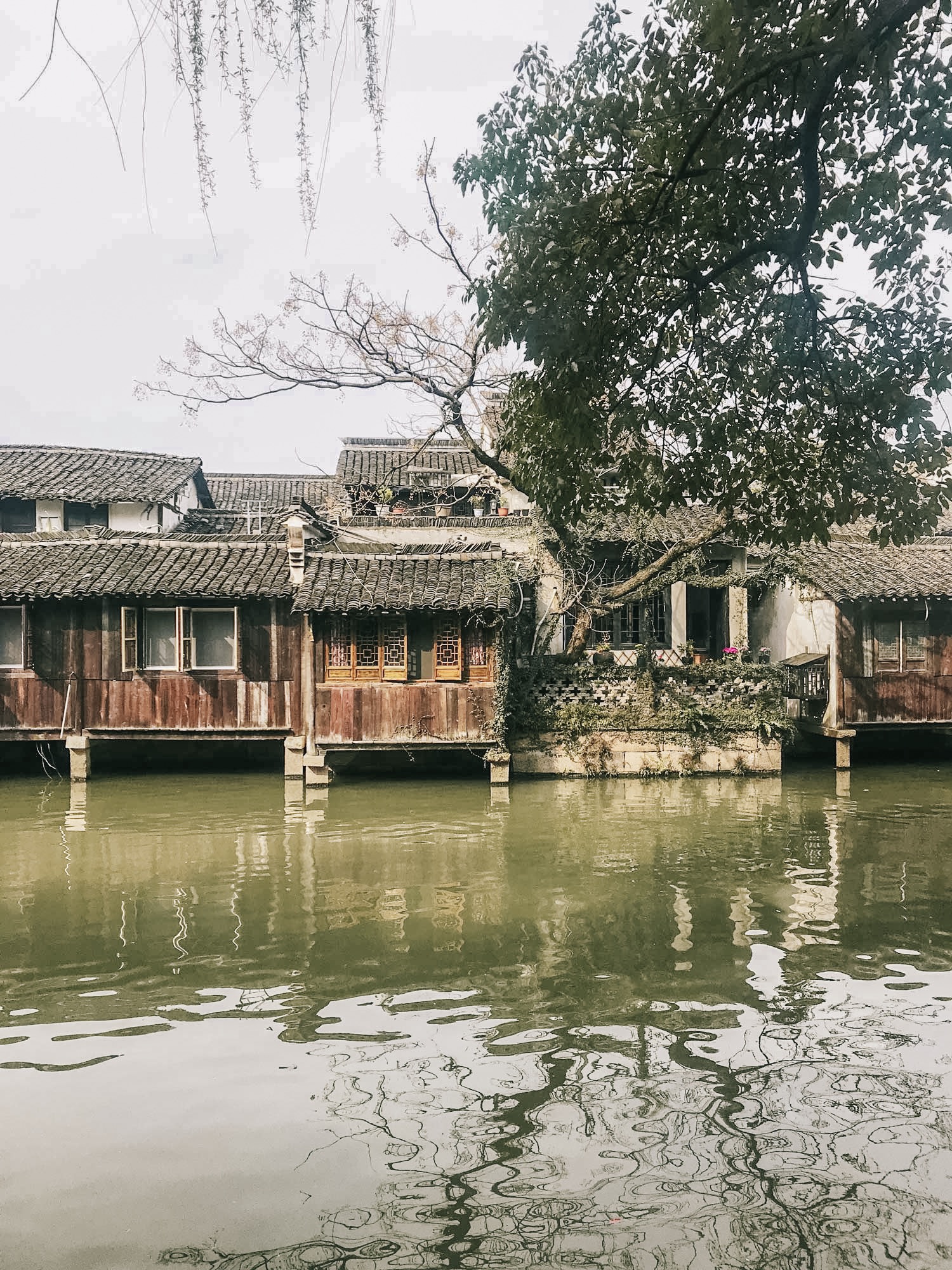

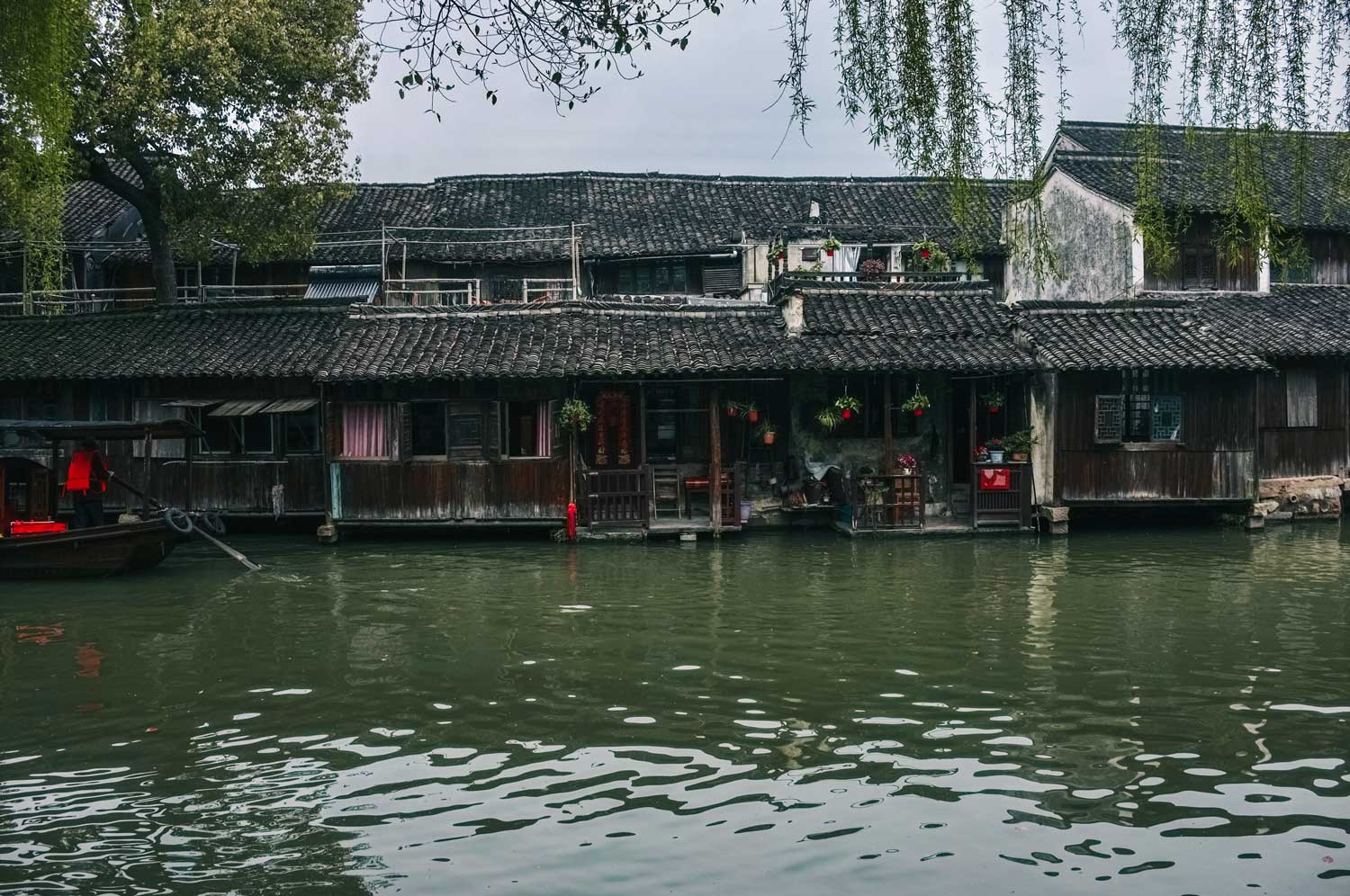
I was born in a water town too, and so was the late Jin Yong (Louis Cha Leung- Yung GBM OBE). The legendary Wuxiao novelist once wrote about his hometown, ” 如果你到过江南, 会想到那些燕子, 那些杨柳与杏花,那些微雨中的小船。“ (“If you have been to Jiangnan, you will think of the swallows, the weeping willows and the yellow apricots, and those tiny boats in the spring drizzle” ) It certainly lost some of its charms while being translated into English, even the word “Jiangnan” stands for a heavenly place in Chinese rather than just a region south of the Yangtze River. But when I first read those words of his, I felt I have been SEEN and HEARD.
I went to boarding school when I was 11, and never really return home ever since then. So whenever I think about my hometown, I go through my younger memories. I think about the yellow apricot blossoms and the boats in the spring rain. The black sallows fly through and over the weeping willows.
And on the last Monday in March 2019, I got to live that memory again. I was 9 years old again. And the weeping willows and the boats in the rain, they are all coming back to me.
As a matter of fact, they never left.
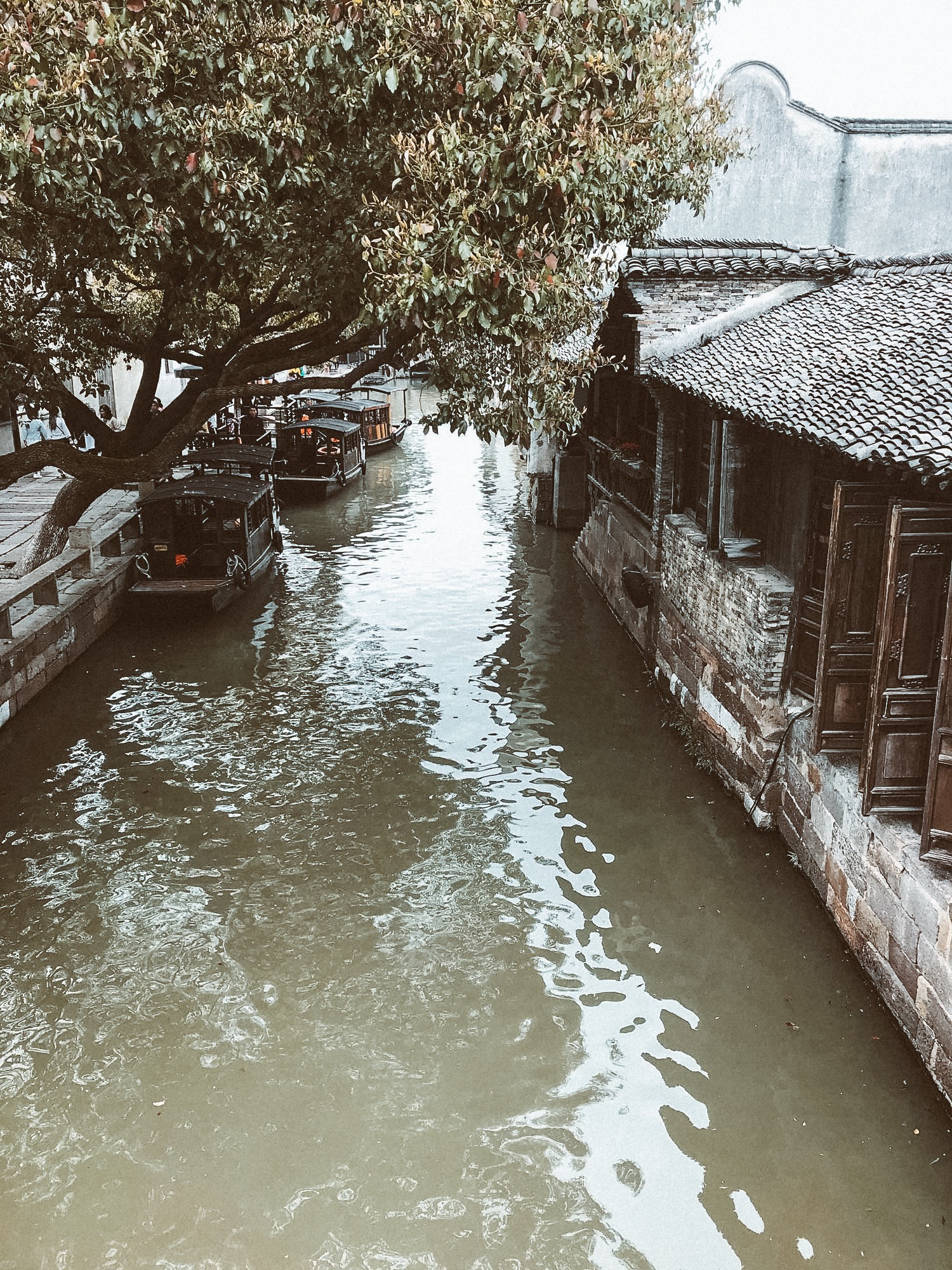
All photos by Annabelle and me shot in Wuzhen, China.